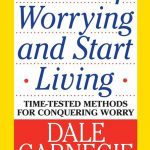Bloomberg by Bloomberg is the autobiography of American Businessman and Politician Micheal Bloomberg. He is the majority owner and co-founder of Bloomberg L.P. He was a three-term New York City Mayor from 2002 to 2013 and was a candidate for the 2020 Democratic nomination for the United States president. According to Forbes, Bloomberg is the 16th-richest man globally, with a net worth of $USD 59 billion as of March 13, 2021.
He got his start in 1966 on Wall Street at investment bank Salomon Brothers selling stocks. He rose to become a general partner at the firm but was fired in 1981, after Phibro Corporation bought Salomon Brothers. Bloomberg was paid $10 million for his equity stake in Salomon Brothers, and he used the windfall to start his firm Bloomberg L.P.
Bloomberg by Bloomberg is a great book by a hardworking successful entrepreneur and he shares his thought process, philosophy, management style, keys to becoming successful, his highs and lows. The book is a great read and I would recommend it highly for every aspiring and budding entrepreneur. Lots of insights, nuggets, words of wisdom and practical lessons for navigating life and dealing with the challenges of business.
“Our greatest challenge today? Fighting the stultifying effects of success, the paralyzing results of growth, the debilitating cancer of entrenchment.”
Here are my favourite takeaways from reading, Bloomberg by Bloomberg:
Luck, Honesty and Kindness
If I had not gotten thrown out of Salomon Brothers, I’d never have founded our company. If I’d been thrown out later, the opportunity to compete against those distracted growing giants would have been less, and our success would probably have been diminished. Suppose I hadn’t been accepted at Johns Hopkins or Harvard Business School, or met Sue, or found just the right people to work at Bloomberg, or had the same college friends, or safely landed that helicopter or that plane. My life would be very different.
Work hard. Share. Be lucky. Then couple that with absolute honesty. People are much more inclined to accept and support someone they think is “on the level.” We all will forgive if we don’t question the intent. And never forget the biblical admonition, “Do unto others as . . .”
Work hard. Share. Be lucky. Then couple that with absolute honesty. People are much more inclined to accept and support someone they think is “on the level.”
Evolution
“Look ahead or fall behind. We’re still looking ahead.”
The technology that we pioneered in the early 1980s has long been ancient history. But we never made the error that so many others have: mistaking their product for the device that delivers it. Executives at Eastman Kodak, for instance, thought they were in the camera and film business, instead of the photography business. The digital photography revolution passed them by, and after more than a century as one of the most innovative companies in the world, they filed for bankruptcy in 2012. At Bloomberg, we got out of the business of building physical computers as soon as PCs began taking off. We knew our core product was data and analytics, not hardware.
The Thrill of Getting Fired:
“So there I was, thirty-nine years old and essentially hearing, “Here’s $10 million; you’re history.” One summer morning, John Gutfreund, managing partner of Wall Street’s hottest firm, and Henry Kaufman, then the world’s most influential economist, told me my life at Salomon Brothers was finished.”
“Was I sad on the drive home? You bet. But, as usual, I was much too macho to show it. And I did have $10 million in cash and convertible bonds as compensation for my hurt feelings. If I had to go, this was the time. I was getting my money out of the firm then instead of ten years later. With Phibro paying a merger premium, I was doubling my net worth. Since somebody else had made the decision, I’d even avoided agonizing over whether to stay at Salomon—a timely question, given my then-declining prospects in the company.”
“Afterward, I didn’t sit around wondering what was happening at the old firm. I didn’t go back and visit. I never look over my shoulder. Once finished: Gone. Life continues!”
“I was never embarrassed to say that I’d been fired and was now running a small start-up business. I’m tougher than many others (or, perhaps as a psychological defense mechanism, I convinced myself not to care what others thought). But I was worried that Sue might be ashamed of my new, less visible status and concerned I couldn’t support the family. A sable jacket seemed to say, “No sweat. We can still eat. We’re still player.”
The Joy of Learning
“Discussing the meaning of the story versus memorizing the plot made the difference—fascinating versus boring. Both classes broadened my perspective: The exposure to history and culture opened my eyes to a whole new world. What a shame all the preceding time was partially wasted. It was an early lesson for me in how we, as a society, must find a way to better engage our children in the joys of learning.”
Lessons of History
“ I developed a sense of history and its legacy, and remain amazed at how little people seem to learn from the past; how we fight the same battles over and over; how we can’t remember what misguided, shortsighted policies led to depression, war, oppression, and division. As citizens, we continually let elected officials pander for votes with old, easy, flawed solutions to complex problems. As voters, we repeatedly forget the lessons of others who didn’t hold their chosen officials accountable. God help us if George Santayana was right and we’re doomed to repeat it all again.”
SHOWING UP
I’ve never understood why everybody else doesn’t do the same thing—make himself indispensable on the job. That was exactly what I did during the summer between my first and second years in graduate school, when I worked for a small Harvard Square real estate company in Cambridge, Massachusetts. Students would come to town just to find an apartment they could move into in September; they were always in a rush, eager to get back to their vacations as soon as possible. We ran generic advertisements in the newspapers for three or four different sizes of rentals; each ad would fit twenty of our apartment listings. Every day, the newly arrived would-be renters got up early, grabbed the newspaper at their hotels, looked at the real estate section, made a phone call, scheduled an appointment with “the next available agent” to see housing that sounded appropriate, and went back to bed. Later in the day, they’d go out and actually look.
I went to work at six-thirty in the morning. By seven-thirty or eight o’clock, all potential renters visiting Cambridge had called our company and booked their apartment-viewing visits with whoever was there. I, of course, was the only one who bothered to come in early to answer the phone: The Adult “professionals” who worked for this company (I was “the summer kid”) started work at nine-thirty. Then, all day long, they sat in wonderment as person after person walked into the office asking for Mr. Bloomberg.
It’s said that 80 percent of life is just showing up. I believe that. You can never have complete mastery over your existence. You can’t choose the advantages you start out with, and you certainly can’t pick your genetic intelligence level. But you can control how hard you work.
It’s said that 80 percent of life is just showing up. I believe that. You can never have complete mastery over your existence. You can’t choose the advantages you start out with, and you certainly can’t pick your genetic intelligence level. But you can control how hard you work. I’m sure someone, someplace, is smart enough to succeed while “keeping it in perspective” and not working too hard, but I’ve never met him or her. The more you work, the better you do. It’s that simple. I always outworked the other person (and if I hadn’t, he or she would be writing this book).
DOING – INCREMENTAL PROGRESS
Life, I’ve found, works the following way: Daily, you’re presented with many small and surprising opportunities. Sometimes you seize one that takes you to the top. Most, though, if valuable at all, take you only a little way. To succeed, you must string together many small incremental advances—rather than count on hitting the lottery jackpot once. Trusting to great luck is a strategy not likely to work for most people. As a practical matter, constantly enhance your skills, put in as many hours as possible, and make tactical plans for the next few steps. Then, based on what actually occurs, look one more move ahead and adjust the plan. Take lots of chances, and make lots of individual, spur-of-the-moment decisions.
THERE ARE NO GUARANTEES
Don’t devise a Five-Year Plan or a Great Leap Forward. Central planning didn’t work for Stalin or Mao, and it won’t work for an entrepreneur either. Slavishly follow a specific step-by-step strategy, the process gurus tell you. It’ll always work, they say. Not in my world. Predicting the future’s impossible. You work hard because it increases the odds. But there’s no guarantee; much is dependent on what cards happen to get dealt. I have always believed in playing as many hands as possible, as intelligently as I can, and taking the best of what comes my way. Every significant advance I or my company has ever made has been evolutionary rather than revolutionary: small earned steps—not big lucky hits.
Planning has its place; the actual thought process sometimes leads to great new ideas. But you can only accomplish what’s possible when you get there.
LOVE WHAT YOU DO
Then, whatever your idea is, you’ve got to do more of it than anyone else—a task that’s easier if you structure things so that you like doing them. Since doing more almost always leads to greater accomplishments, in turn you’ll have more fun. And then you’ll want to do even more because of the rewards. And so on. I’ve always loved my work and put in a lot of time, which has helped make me successful.
I truly pity people who don’t like their jobs. They struggle at work, so unhappily, for ultimately so much less success, and thus develop even more reason to hate their occupations. There’s too much delightful stuff to do in this short lifetime not to love getting up on a weekday morning.
Happinness
Think about the percentage of your life spent working and commuting. If you’re not content doing it, you’re probably pretty miserable with the situation. Change it! Work it out with those next to you on the production line. Talk to your boss. Sit down with those you supervise. Alter what’s in your own head.
Do something to make it fun, interesting, challenging, exciting. You’ve got to be happy at your job. Sure, being able to feed the kids is the first focus. But when layoffs and promotions are announced, those with surly looks on their faces, those who always try to do less, those who never cooperate with others get included in the layoffs and miss the promotions. This big part of your life affects you, your family, society, and everything else you touch.
Long Term Thinking
Some young people starting their careers today are too impatient for current compensation, at the expense of continuing their education and giving their jobs a chance. Get back to work. Forget the money today. There’s plenty of time for that later. Novices should go to the best firm they can get into—and then listen and learn.
Frugality
Money wasn’t the issue. I’d long since paid off my loans and was living a respectable if not extravagant life. I took the subway to work, I went to free concerts in Central Park, and my most romantic dates were beer and pizza with a girlfriend late at night on the Staten Island Ferry (five cents round-trip, food and drink extra). I lived in the same one-room studio for ten years and didn’t bother to own a car. I never spent a lot, but I also don’t remember wanting anything I didn’t just go out and buy. Good times, great friends, fantastic job, lots of cash: I had it all.
Be Kind
Someone once said, “Be nice to people on the way up; you’ll pass the same ones on the way down.” I believe in treating associates well, but not for that cynical reason: Having been both up and down repeatedly, my experience says you pass different people as you go through the inevitable cycle.
Starting over at 39
I had spent my first twenty-four years getting ready for Wall Street. I had survived fifteen more years before Salomon Brothers threw me out. At age thirty-nine, the third phase of my life was about to start. With whatever values my parents had taught me, $10 million in my pocket, and confidence based on little more than bruised ego, I started over.
Just Do It
If you’re going to succeed, you need a vision, one that’s affordable, practical, and fills a customer need. Then, go for it. Don’t worry too much about the details. Don’t second-guess your creativity. Avoid overanalyzing the new project’s potential. Most importantly, don’t strategize about the long term too much.
The difference between stubbornness and having the courage of conviction sometimes is only in the results.
Minimum Viable Product (MVP)
“My rule is: See it work exactly the way you’ll use it (same volume, environment, time of day, and so on) or don’t buy it! Demand goods, not promises. And that’s exactly what we offer our customers. When we develop new products, we build and deliver a practical working model of what the client can actually use, and then through an iterative development process, we add features and functions that make the product outstanding. In management-speak, this is called MVP: minimal viable product. But for customers, it just means: “Buy what’s deliverable, not what could be.”
No Class Distinction
“We have no reserved parking spaces for senior executives. If you want to leave your car right by the door, just come in earlier. Creating class distinctions isn’t constructive. That’s why I don’t believe in executive dining rooms either. The issue isn’t fairness. If we constantly remind those people at the bottom that they are not at the top, do you really expect them to be “gung ho” about the company? Remember, remove the bottom 50 percent and half of everyone remaining joins that lower group instantly.”
“Without knocking the value of the accounting profession, it is true that “numbers lie—and liars use numbers.”
“numbers lie—and liars use numbers.”
“Without knocking the value of the accounting profession, it is true that “numbers lie—and liars use numbers.” Only with superhuman effort can a company keep accounting from being misused as it gets bigger. I can’t count the number of times I’ve watched people incorrectly make decisions that confuse incremental costs with fully allocated ones, or misuse present value calculations. These concepts can be useful tools, but slavish adherence to them can produce cockeyed results. Had the person who invented the wheel used “net present value,” we would still be walking!”
Bloomberg Philanthropies- noncommunicable diseases
The great tragedy is that the political will has not kept pace with scientific and technological advances. So much could be done if we cared just a touch more.
“In low- and middle-income countries, noncommunicable diseases kill two of every three people, but only 1 percent of global health funding is aimed at stopping them”
That’s why I’ve made public health a major focus of my philanthropy, and specifically, the kinds of noncommunicable diseases—like diabetes and heart disease—that don’t get a lot of attention but kill 40 million people every year. In fact, for the first time in human history, more people around the world are dying from non-communicable diseases than from “communicable ones, like malaria and polio. The way we think about mortality, however, has not kept pace. We tend to accept these deaths as unavoidable, but they’re not.
Parenting
“Forcing your children and protégés to go solo—and leaving them alone while they struggle as adolescents with relatively simple problems—is something parents and mentors must do. It’s not easy, but it’s necessary if they’re to survive later on their own.”
A lot of friendship is built on common experience. End the commonality and you tend to drift apart.
Dogma
Too often, people do things automatically, thoughtlessly. It has nothing to do with their inherent intelligence. It has everything to do with their inquisitiveness. Our schools too often fail to teach logic and skepticism. We are taught facts and techniques, not concepts and thoughts; we learn to accept, not question. This terrible failing in our educational system penalizes students for the rest of their lives.
All the best in your quest to get better. Don’t Settle: Live with Passion.



3 Comments
Pingback: 100 Books Reading Challenge 2021 – Lanre Dahunsi
Pingback: Who Luck – The Power of Proximity. – Lanre Dahunsi
Pingback: The Gift of getting fired. – Lanre Dahunsi